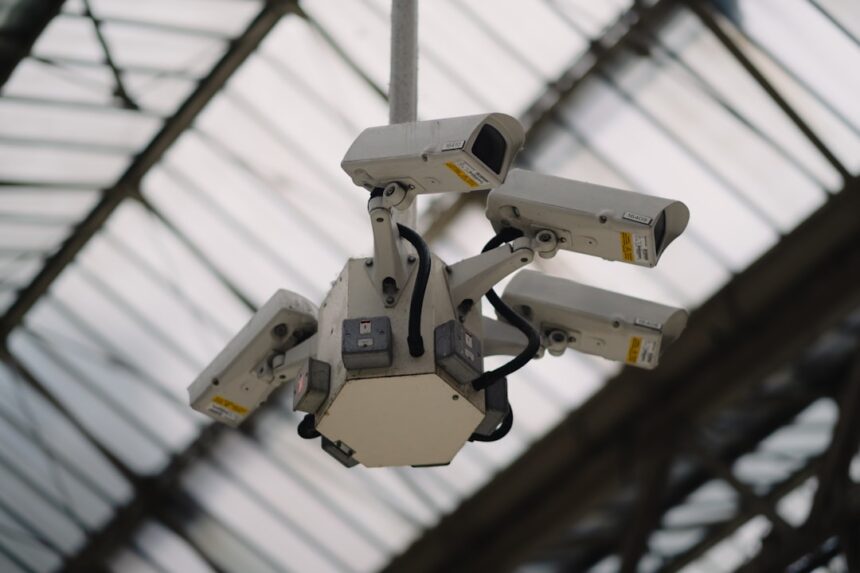In an age where technology permeates every aspect of daily life, the phenomenon of constant surveillance has become increasingly prevalent. From the ubiquitous presence of security cameras in public spaces to the tracking capabilities of smartphones, individuals are often under the watchful eye of various monitoring systems.
The rise of social media platforms, where users voluntarily share their lives with a global audience, further complicates the landscape, blurring the lines between privacy and public exposure. The implications of constant surveillance extend beyond mere inconvenience; they delve into the psychological realm, affecting how individuals perceive themselves and their interactions with others. As society grapples with the balance between safety and privacy, it becomes essential to explore the multifaceted effects of being under constant observation.
Understanding these effects is crucial for fostering a healthier relationship with technology and mitigating potential mental health challenges that arise from this modern phenomenon.
Key Takeaways
- Constant surveillance can have a significant impact on mental health and well-being.
- It can lead to increased anxiety levels and feelings of paranoia.
- Trust and relationships can be negatively influenced by constant surveillance.
- Self-esteem and personal freedom can be affected by the presence of constant surveillance.
- Coping strategies and ethical considerations are important for managing the impact of constant surveillance on mental health.
The Psychological Effects of Constant Surveillance
The psychological ramifications of constant surveillance are profound and varied. Individuals often experience heightened levels of stress and anxiety as they navigate environments where they feel perpetually monitored. This feeling can lead to a state of hyper-vigilance, where individuals become overly aware of their surroundings and their behavior, fearing judgment or repercussions for their actions.
Such heightened awareness can be mentally exhausting, leading to fatigue and a diminished sense of personal agency. Moreover, the psychological burden of being constantly observed can manifest in feelings of inadequacy and self-doubt. When individuals know they are being watched, they may alter their behavior to conform to perceived societal expectations, which can lead to a disconnection from their authentic selves.
This dissonance can create internal conflict, as individuals struggle between their true identities and the personas they feel compelled to project under scrutiny. Over time, this can erode self-esteem and contribute to a pervasive sense of dissatisfaction with one’s life.
The Impact of Constant Surveillance on Anxiety Levels

Anxiety levels can significantly escalate in environments characterized by constant surveillance. The knowledge that one’s actions are being monitored can create a persistent sense of unease, leading individuals to second-guess their decisions and behaviors. This anxiety is often exacerbated by the fear of negative evaluation; individuals may worry about how they are perceived by others, leading to increased self-consciousness and social anxiety.
The pressure to perform or behave in a certain way can be overwhelming, resulting in a cycle of anxiety that is difficult to break. Furthermore, constant surveillance can lead to anticipatory anxiety, where individuals become anxious about potential future scrutiny. This form of anxiety can hinder one’s ability to engage fully in social situations or pursue opportunities that might involve exposure to others.
The fear of being judged or misinterpreted can stifle creativity and spontaneity, leading to a more cautious approach to life that ultimately diminishes overall well-being. As anxiety levels rise, individuals may find themselves withdrawing from social interactions or avoiding situations where they feel they might be under observation.
The Relationship Between Constant Surveillance and Paranoia
| Study | Findings |
|---|---|
| Research 1 | Constant surveillance leads to increased levels of paranoia among individuals. |
| Research 2 | Paranoia is linked to the feeling of being constantly watched or monitored. |
| Research 3 | People under constant surveillance tend to exhibit higher levels of stress and anxiety. |
The relationship between constant surveillance and paranoia is complex and concerning. As individuals become accustomed to being watched, they may develop an increased sensitivity to perceived threats or judgments from others. This heightened awareness can lead to paranoid thoughts, where individuals begin to believe that others are constantly evaluating them or conspiring against them.
Such thoughts can create a feedback loop, reinforcing feelings of isolation and distrust. Paranoia stemming from constant surveillance can also manifest in various ways, including social withdrawal and heightened defensiveness. Individuals may become suspicious of others’ intentions, interpreting benign actions as potential threats.
Over time, the pervasive nature of these paranoid thoughts can lead to significant distress and impair one’s ability to function effectively in both personal and professional settings.
Constant Surveillance and its Influence on Trust and Relationships
The influence of constant surveillance on trust and relationships cannot be overstated. In environments where individuals feel they are being watched, trust can erode rapidly. People may become hesitant to share personal information or express vulnerability for fear that their words will be scrutinized or misinterpreted.
This lack of openness can create barriers in relationships, preventing genuine connections from forming. Moreover, the pervasive nature of surveillance can lead individuals to question the motives of those around them. When trust is compromised, relationships may become transactional rather than authentic, as individuals navigate interactions with caution and suspicion.
This shift can result in a culture of defensiveness, where people prioritize self-protection over genuine engagement with others. As trust diminishes, so too does the potential for deep, meaningful relationships that are essential for emotional well-being.
The Connection Between Constant Surveillance and Self-Esteem

Constant surveillance has a detrimental impact on self-esteem, as individuals grapple with the pressures of being perpetually observed. The fear of judgment can lead individuals to internalize negative perceptions about themselves, fostering feelings of inadequacy and unworthiness. When people feel they are constantly being evaluated, they may begin to define their self-worth based on external validation rather than intrinsic qualities.
Additionally, the comparison culture fostered by social media exacerbates these issues. Individuals often find themselves measuring their lives against curated images and narratives presented by others online. This comparison can lead to feelings of inferiority and dissatisfaction with one’s own life circumstances.
As self-esteem wanes, individuals may withdraw from social interactions or engage in self-destructive behaviors as a means of coping with their diminished sense of self-worth.
The Role of Constant Surveillance in Stress and Burnout
The role of constant surveillance in contributing to stress and burnout is increasingly recognized in today’s fast-paced world. The pressure to perform under scrutiny can lead to chronic stress, as individuals feel compelled to meet unrealistic expectations set by themselves or society at large. This relentless pressure can result in physical and emotional exhaustion, ultimately culminating in burnout—a state characterized by overwhelming fatigue, cynicism, and reduced efficacy.
Moreover, the inability to escape the watchful eye of surveillance can prevent individuals from finding respite or relaxation in their daily lives. The constant awareness that one is being observed can make it difficult to unwind or engage in self-care practices. As stress accumulates without adequate outlets for release, individuals may find themselves trapped in a cycle of overwork and exhaustion that is difficult to break free from.
Constant Surveillance and its Effect on Personal Freedom and Autonomy
Constant surveillance poses significant challenges to personal freedom and autonomy. When individuals feel they are being watched at all times, their ability to make choices freely is compromised. The fear of judgment or repercussions can lead people to conform to societal norms rather than pursue their authentic desires or interests.
This loss of autonomy can stifle creativity and individuality, as people prioritize compliance over self-expression. Furthermore, the implications for personal freedom extend beyond individual choices; they also affect societal dynamics as a whole. In environments where surveillance is pervasive, dissenting voices may be silenced out of fear of reprisal or scrutiny.
This chilling effect on free expression undermines democratic principles and stifles innovation, as individuals hesitate to challenge the status quo when they know they are being monitored.
Coping Strategies for Dealing with Constant Surveillance
In light of the challenges posed by constant surveillance, developing effective coping strategies is essential for maintaining mental health and well-being. One approach involves fostering awareness around the impact of surveillance on one’s thoughts and feelings. By recognizing when anxiety or paranoia arises due to perceived scrutiny, individuals can begin to challenge these thoughts and reframe their perspectives.
Engaging in mindfulness practices can also be beneficial in counteracting the effects of constant surveillance. Mindfulness encourages individuals to focus on the present moment rather than ruminating on potential judgments from others. Techniques such as meditation or deep breathing exercises can help ground individuals in their experiences, reducing anxiety levels associated with feeling watched.
Additionally, establishing boundaries around technology use can empower individuals to reclaim their sense of autonomy. Limiting social media engagement or setting specific times for checking notifications can help reduce feelings of being constantly monitored. By taking proactive steps to manage exposure to surveillance technologies, individuals can cultivate a greater sense of control over their lives.
The Ethical Implications of Constant Surveillance on Mental Health
The ethical implications surrounding constant surveillance are significant and warrant careful consideration. As society increasingly embraces technology that monitors behavior, questions arise regarding privacy rights and individual autonomy. The potential for misuse or abuse of surveillance data raises concerns about consent and accountability—issues that are particularly relevant in discussions about mental health.
Moreover, the ethical responsibility lies not only with those who implement surveillance systems but also with society as a whole. Recognizing the mental health implications associated with constant observation necessitates a collective effort to advocate for policies that prioritize individual rights while balancing safety concerns. Ethical considerations must guide the development and implementation of surveillance technologies to ensure that mental health is not compromised in the pursuit of security.
Conclusion and Recommendations for Managing Constant Surveillance’s Impact on Mental Health
In conclusion, the pervasive nature of constant surveillance presents significant challenges for mental health and well-being. From heightened anxiety levels to diminished self-esteem and strained relationships, the effects are far-reaching and complex. However, by fostering awareness around these issues and implementing effective coping strategies, individuals can mitigate some of the negative impacts associated with being under constant observation.
Recommendations for managing these challenges include prioritizing mindfulness practices, establishing boundaries around technology use, and advocating for ethical considerations in surveillance policies. By taking proactive steps toward reclaiming personal autonomy and fostering genuine connections with others, individuals can navigate the complexities of constant surveillance while safeguarding their mental health. Ultimately, fostering a culture that values privacy alongside security will be essential for promoting well-being in an increasingly monitored world.
In exploring the psychological effects of constant surveillance, it’s crucial to consider the broader implications of living under such scrutiny. An article that delves into related themes is available on In The War Room, where the discussion extends to the impact of surveillance on personal freedom and societal behavior. This piece provides a comprehensive look at how pervasive monitoring can alter individual and collective psyches, fostering a climate of anxiety and self-censorship. By examining these dynamics, the article offers valuable insights into the subtle yet profound ways surveillance can shape human experience.
FAQs
What is constant surveillance?
Constant surveillance refers to the continuous monitoring of individuals, groups, or activities through the use of technology such as cameras, GPS tracking, and other forms of monitoring.
What are the psychological effects of constant surveillance?
Constant surveillance can lead to feelings of anxiety, stress, and paranoia as individuals may feel like they are constantly being watched and judged. It can also lead to a sense of loss of privacy and autonomy, which can impact mental well-being.
How does constant surveillance impact behavior?
Constant surveillance can lead to self-censorship and conformity as individuals may alter their behavior to align with perceived expectations of the surveillant. This can lead to a chilling effect on free expression and creativity.
What are the implications of constant surveillance on mental health?
Constant surveillance can contribute to increased levels of stress, anxiety, and even symptoms of post-traumatic stress disorder (PTSD) in extreme cases. It can also impact trust and social relationships, leading to feelings of isolation and alienation.
How can individuals cope with the psychological effects of constant surveillance?
Coping strategies may include seeking support from trusted individuals, practicing mindfulness and self-care, and advocating for privacy rights and boundaries. It may also involve seeking legal and ethical protections against unwarranted surveillance.




